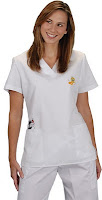Blood. There is blood everywhere. On the floor, pooling in basins, dripping from sponges and coating once glimmering stainless steel instruments. Smoke lazily floats up the room as the smell of burning flesh lingers in the air, cloying, at times suffocating. A monitor is beeping incessantly at one corner of the room, wires and cables extending from its body like a robotic creature happily entangling its prey.
The room is filled with aliens. Or maybe not, but they sure look like extraterrestrial beings. Or maybe those specialists who cater to ones. All suited up, capped and masked, with rubberized hands. They talk with invisible mouths, their eyes being the only windows to their souls. Assuming each of them has one.
And in the middle, a body. Lying down, immobile and strapped up. A tube protruding from its mouth, and its intestine poking out from its torso. A plastic suction tube held by one of those rubber hands slurps out excess fluid as a variety of metal clamps stick out from the abdominal hole like some grotesque part of a Saw torture chamber.
Buzz. Smoke. Clamp. Tie. Suture.
Stitch, stitch, stitch.
The scene may seem like an empty mechanical show of technical procedures, but behind every needle bite is a disease and behind every disease is a person, and behind every person is a story.
These are the stories that I would never have witnessed anywhere else.
This familiar shiny hallway and these tiled rooms have witnessed much of people's weaknesses, but also humanity's unwavering strength, more than any other places in the world. To be a spectator a midst all the action, suspense, drama and comedy have undoubtedly shaped me more than I can explain and have made me view things in a different lense. Things may not appear brighter nor more colorful, but they do extract sense and importance in this world governed by misplaced priorities and the pursuit of temporary bliss.
Future related posts in this series will tell stories not my own, but of life's complexities that only presents itself in the most trying of times. No paper-pushing routine job, even the highest paid ones, could mirror this front-seat view on the unadulterated, barefaced truths of our existence. And this is why I wouldn't exchange this experience for the glitz of a more glamorous job.
So, who am I?
I am an OR Nurse. And I have stories to tell.
 RSS Feeds
RSS Feeds
 File Under :
File Under :


















































